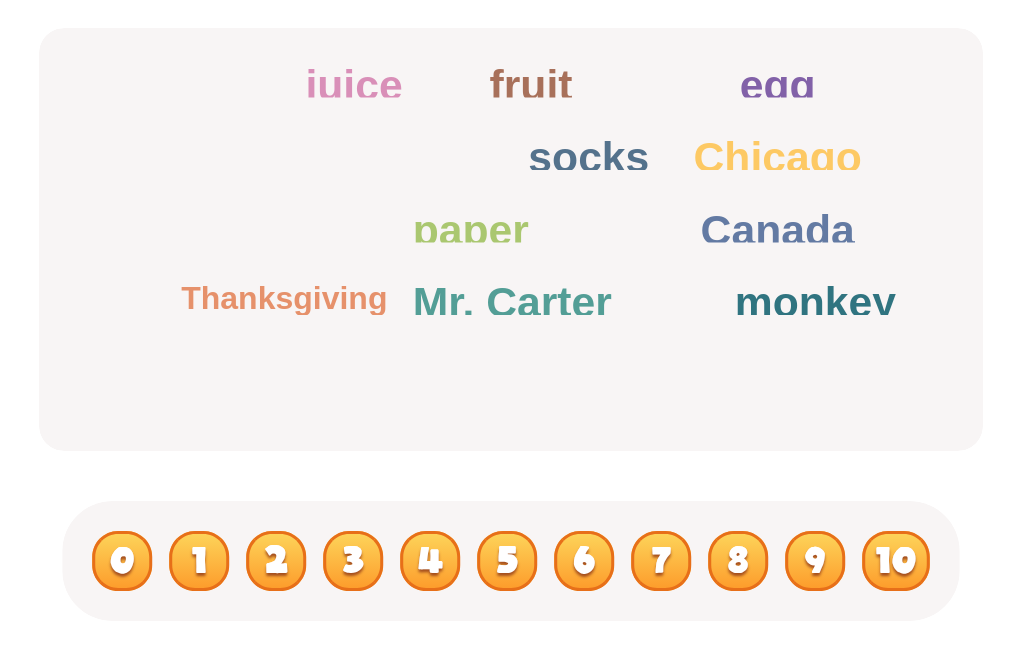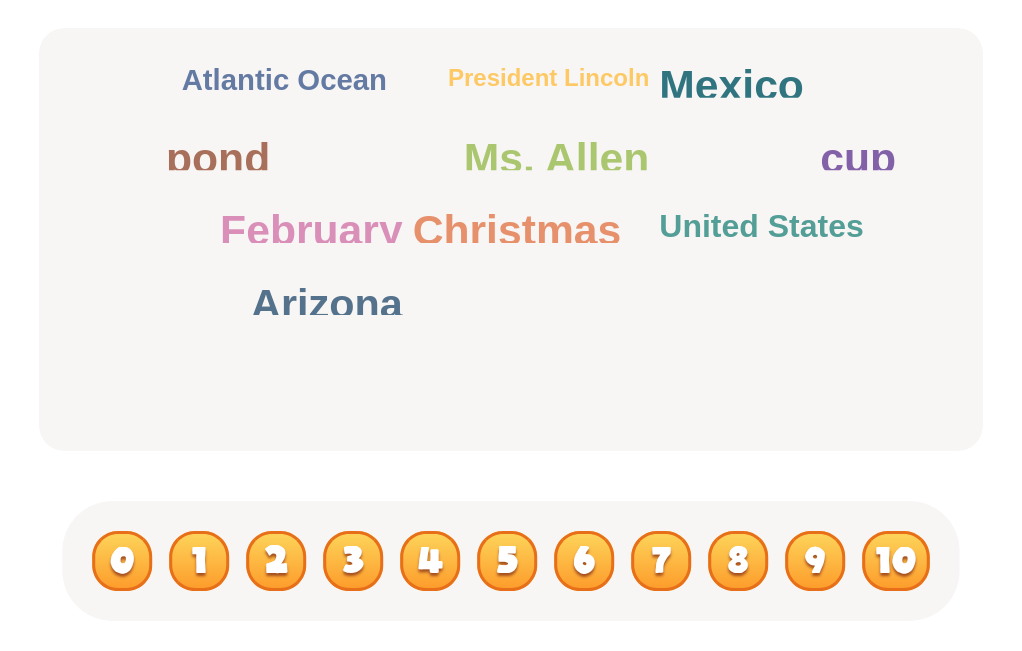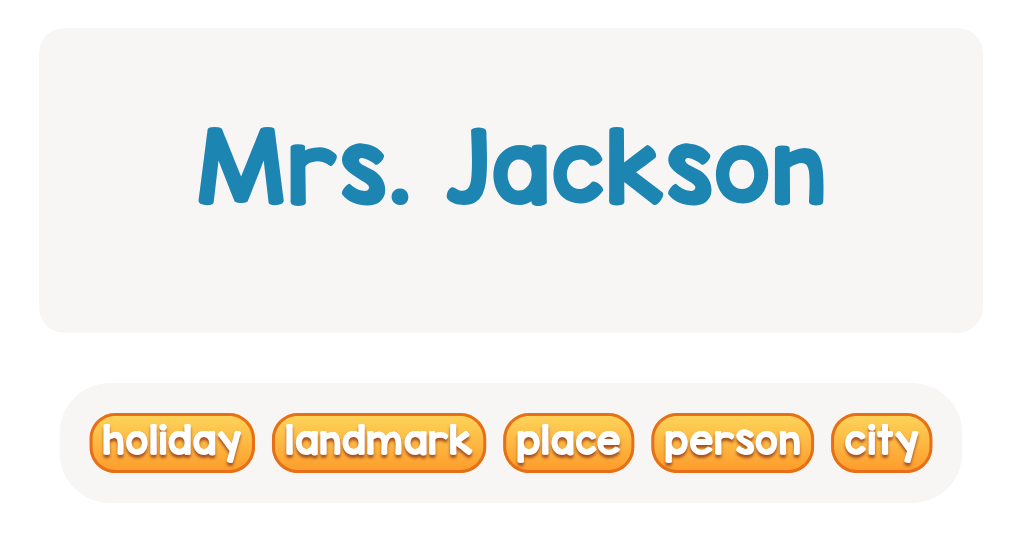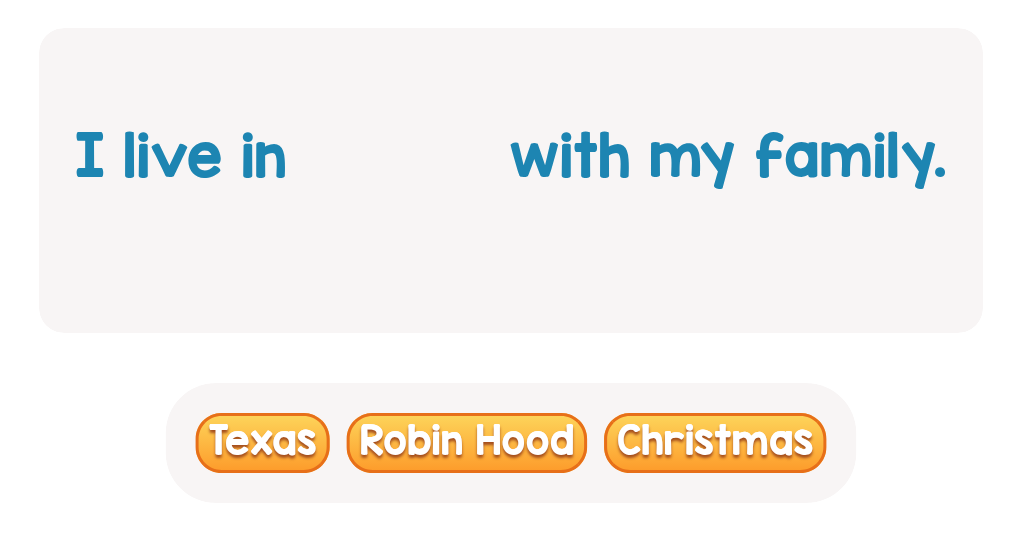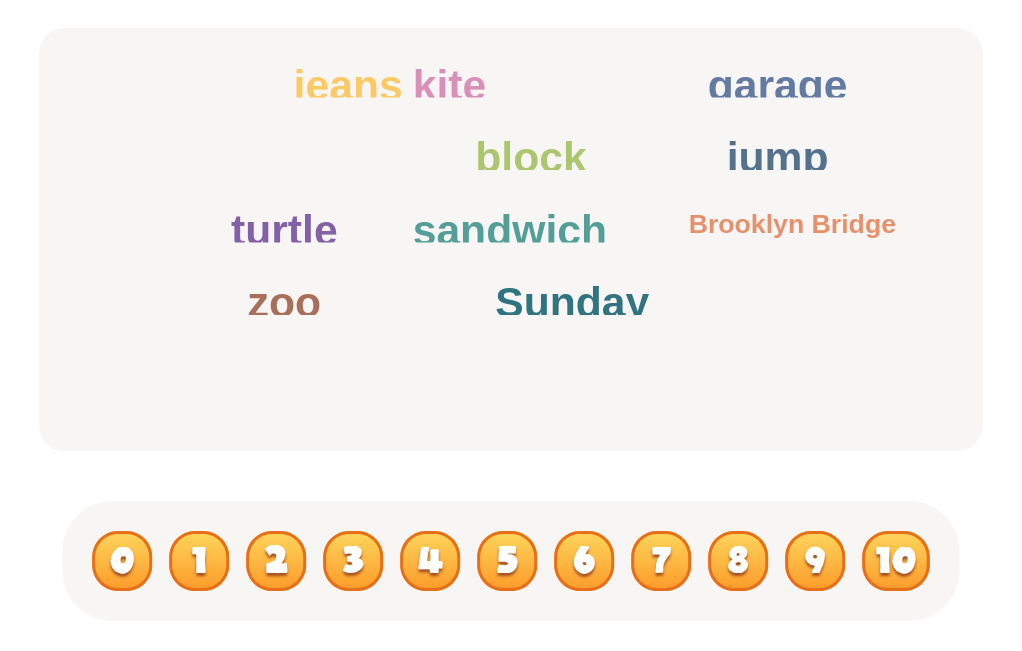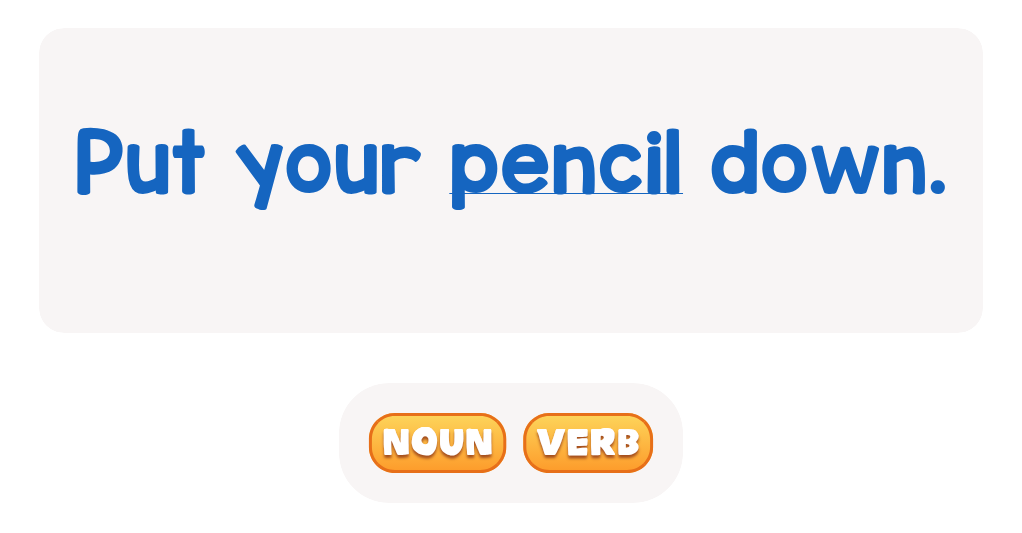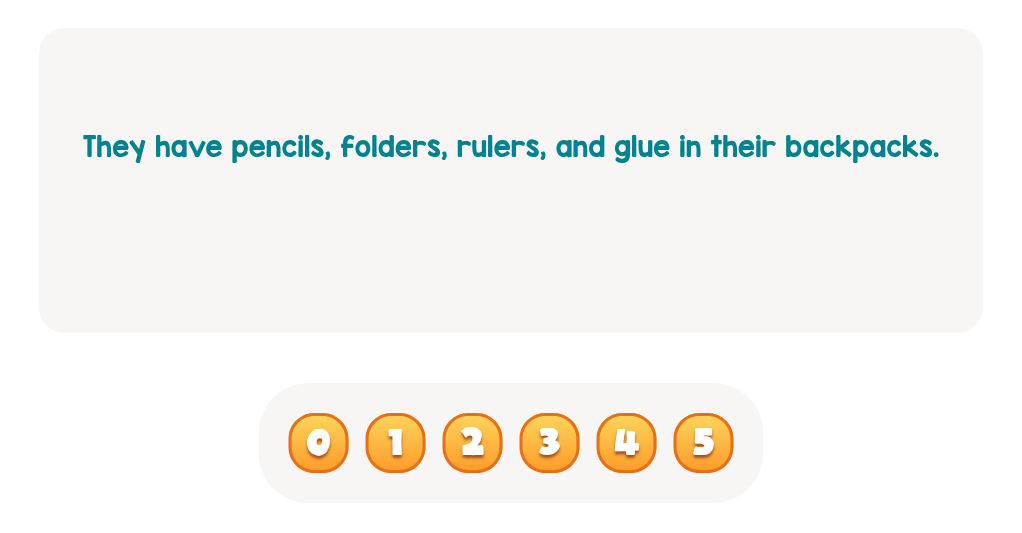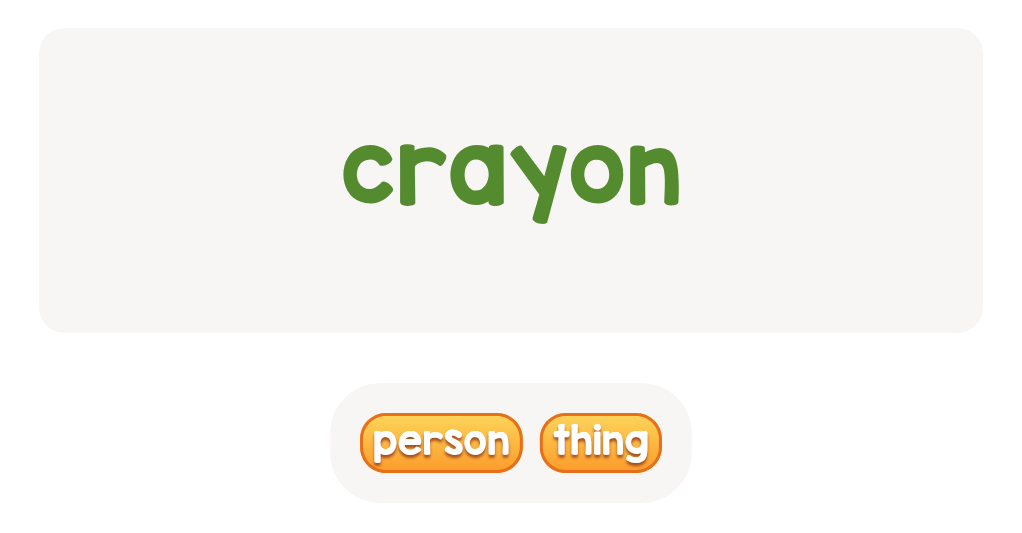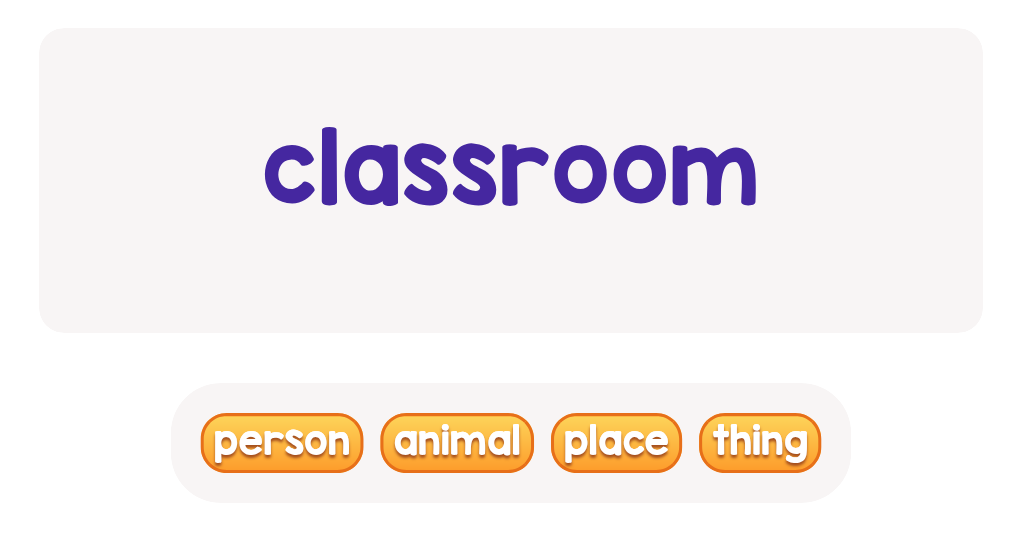Improving spelling skills Grammar Worksheets for Ages 3-7
5 filtered results
-
From - To
Enhance your child's spelling skills with our engaging Grammar Worksheets specially designed for ages 3-7. These interactive resources make learning fun and effective, helping young learners grasp essential spelling concepts while building their vocabulary and writing abilities. Our carefully crafted worksheets promote phonetic recognition, word formation, and sentence structure through manageable exercises tailored to young minds. Perfect for both home and classroom environments, these worksheets provide opportunities for practice in an enjoyable way. Empower your child's literacy journey today and watch their confidence soar as they master spelling skills through play and creativity! Explore our collection and start making learning exciting.
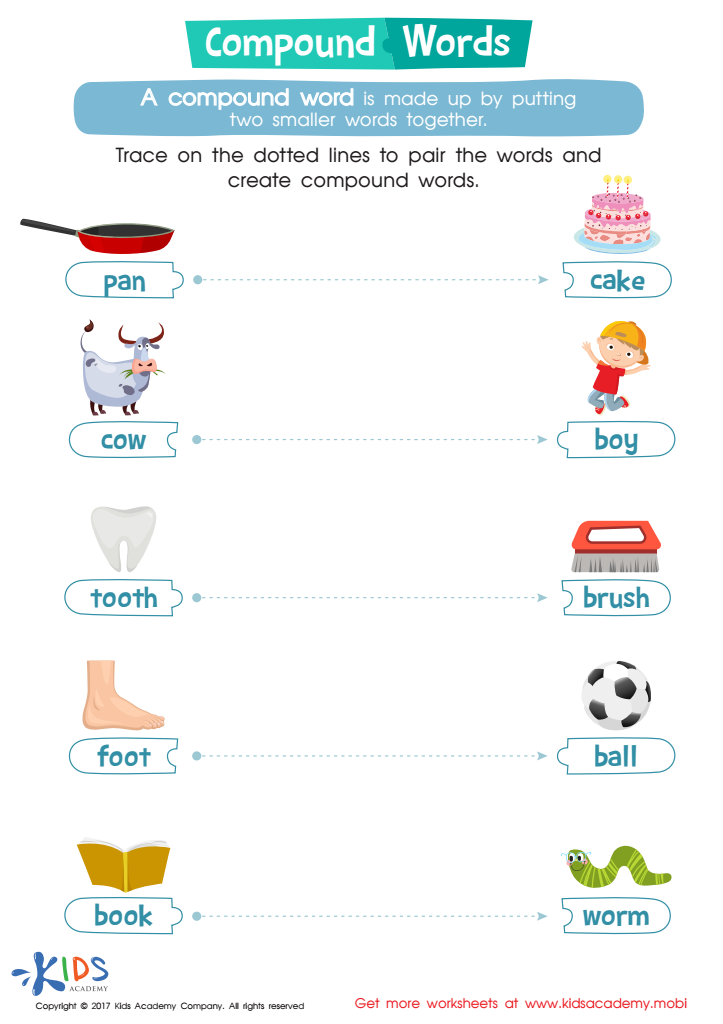

Compound Words Word Structure Worksheet
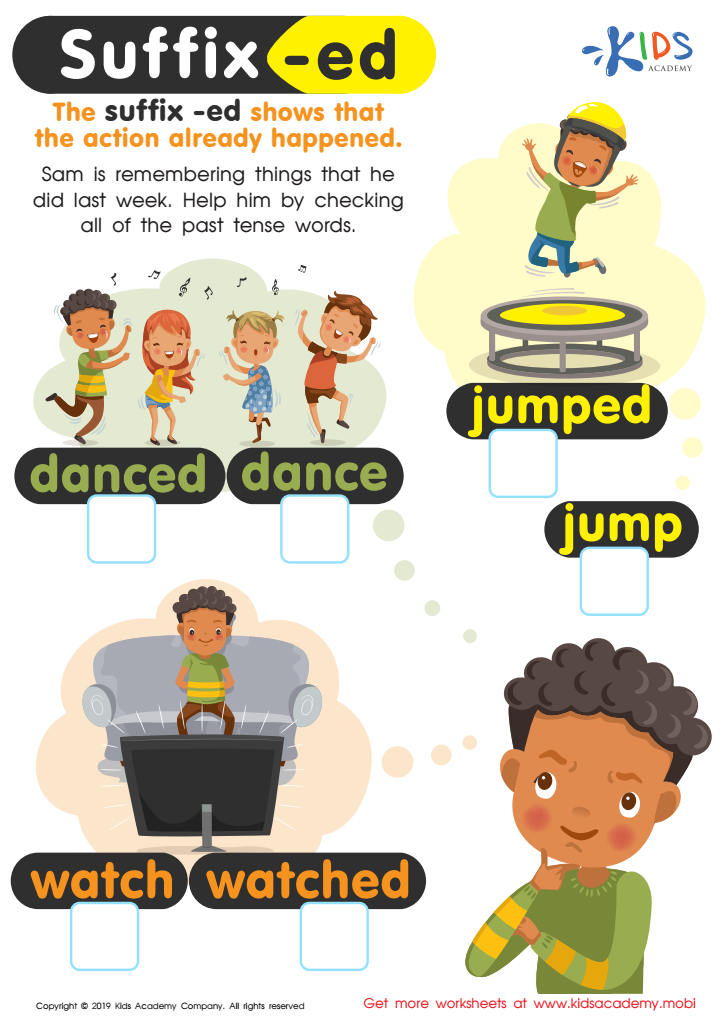

Suffix-ed Worksheet
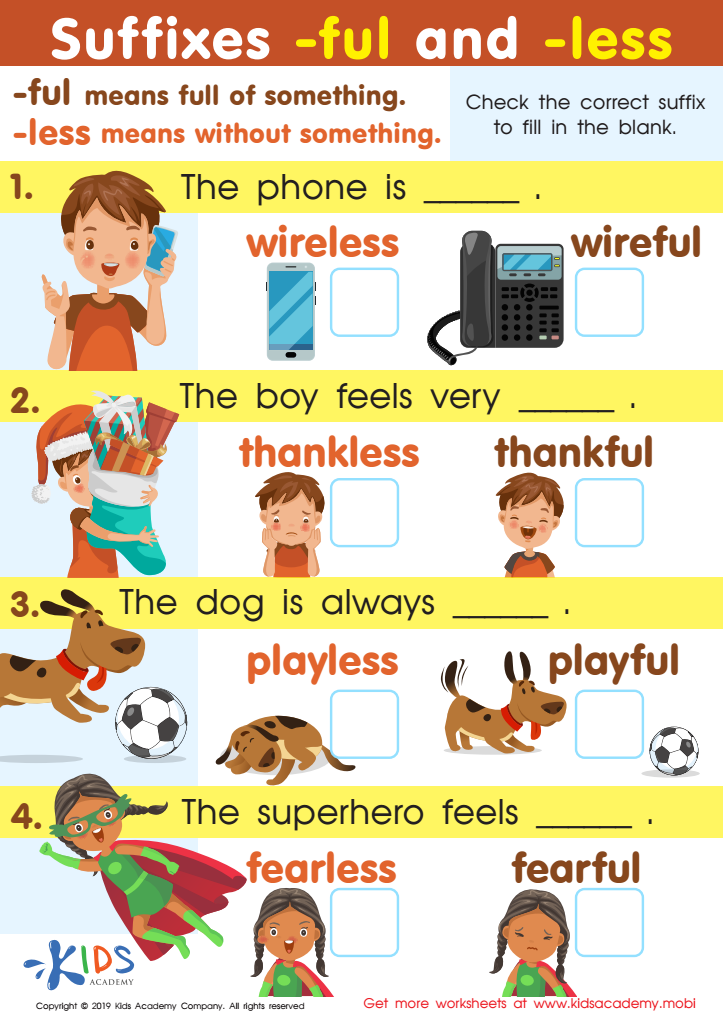

Suffixes –ful and –less Worksheet
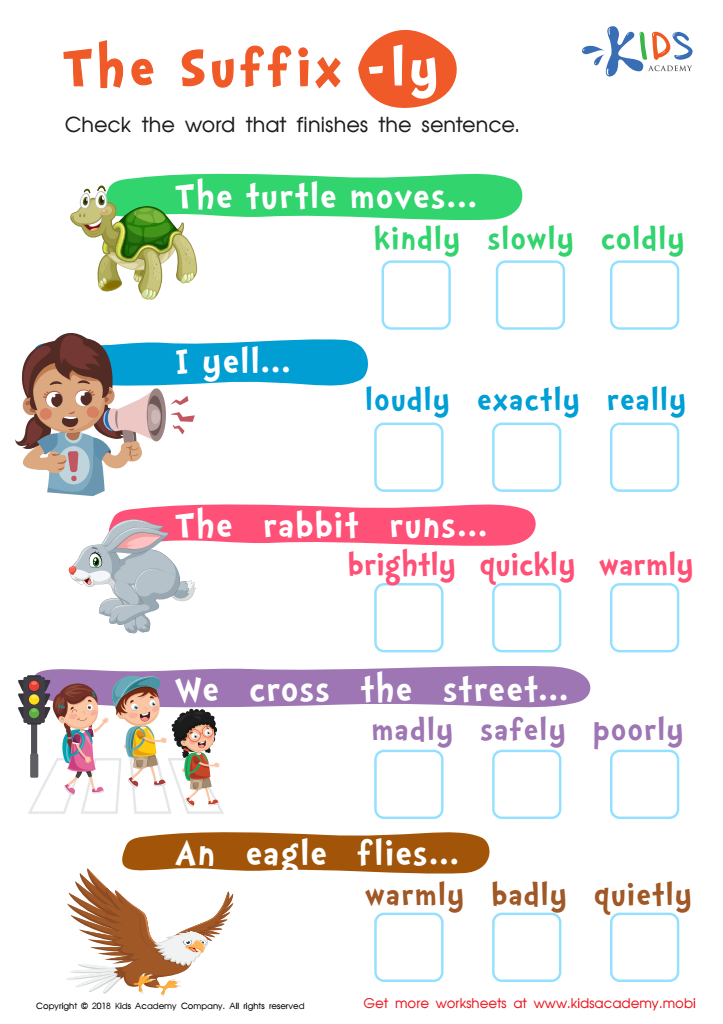

The Suffix -Ly Worksheet
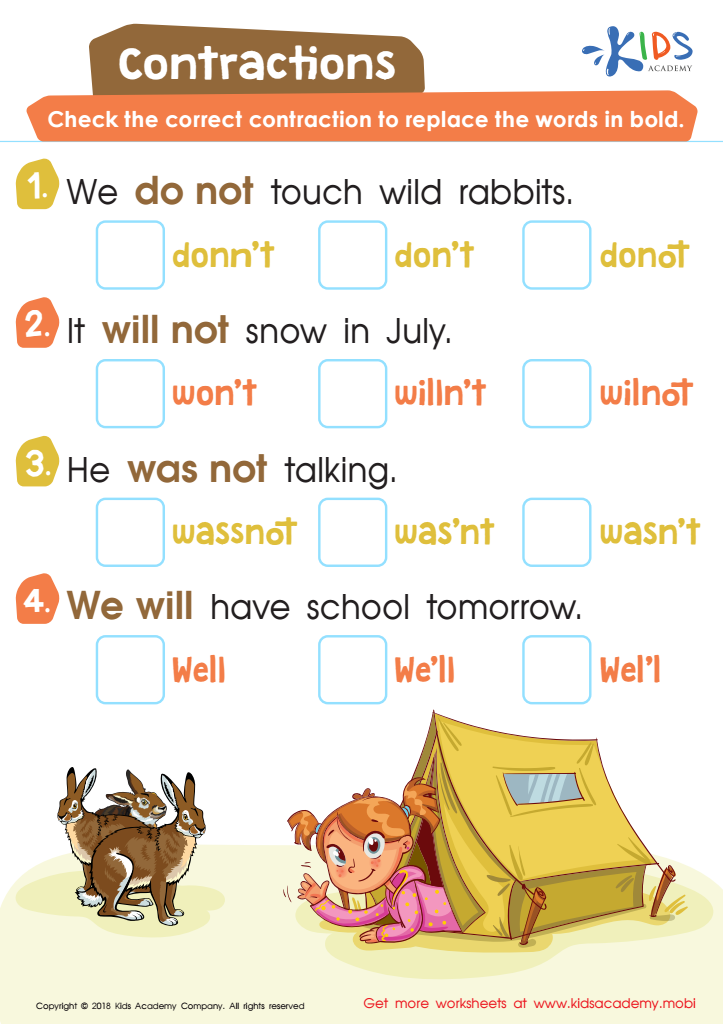

Contractions Worksheet
Improving spelling skills and grammar for children aged 3-7 is crucial for several reasons. First, this period is vital for language development, as young children are particularly receptive to learning new words and their correct spellings. Mastery of spelling enhances vocabulary acquisition, empowering children to express themselves clearly and confidently.
Additionally, strong spelling and grammar skills lay the groundwork for future academic success. Literacy is foundational across all subjects, and children who grasp these skills early are more likely to excel in reading, writing, and even oral communication. This ability not only helps in school assignments but also fosters a love for reading and learning.
Furthermore, understanding basic spelling and grammar contributes to children's social interactions. Proper communication skills can enhance their ability to make friends and engage in conversations, building essential social skills.
Parents and teachers play a vital role in this developmental phase by providing a supportive environment that encourages exploration of language. Engaging activities, playful learning strategies, and positive reinforcement can motivate children to practice these skills. Ultimately, investing in spelling and grammar development during these formative years cultivates a foundation for lifelong learning and effective communication.
 Assign to My Students
Assign to My Students
